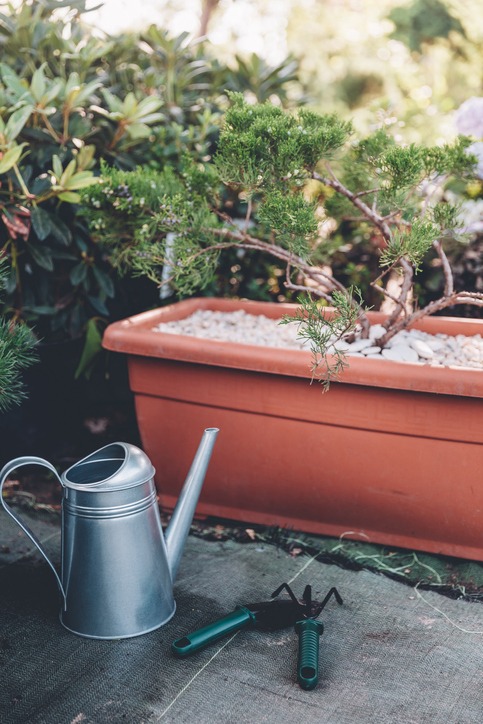Raised bed gardening is a great idea if you have poor soil conditions but think carefully before opting to install them if your soil is already of high quality.
There are some disadvantages as well as advantages to building a raised bed vegetable garden – which I’ve covered below.
Control Over Your Soil
Gardeners often find themselves locked into a constant battle with trying to improve poor soil. With raised bed gardening, you can side-step this often frustrating problem and gain total control over your soil.
It is achieved simply by building a raised area directly on top of your native soil. The only exception to this is if you are intending to grow acidic-loving plants on chalky/lime based soils.
Tending
A raised bed vegetable garden can be aesthetically pleasing too, but they do need a bit more looking after than regular ‘growing in the ground arrangements.
One of the main disadvantages most gardeners will talk about is the fact they dry out very quickly, so you will find yourself needing to water them more often than the rest of the garden. The deeper the beds, the more water you will need. Therefore if you do decide to dabble in the raised bed vegetable garden option, perhaps investing in a good-sized rainwater butt – or several of them might be worth considering, or perhaps a porous hose system.
Advantages
Raised bed gardening does mean you can achieve higher crop yields with some types of vegetables, especially if the bed is quite deep. Weeds are usually less of an issue too but are not eliminated altogether. Raised beds are also good for those finding they are less agile than they used to be, as you don’t have so far to stoop when tending them!
The advantages of a raised bed vegetable garden:
- They enable you to sidestep any poor-soil issues you may have
- You get to control the type of soil you use
- You can achieve high yields with the right crops
- Fewer weeds and pests
- The soil warms more quickly in the springtime, giving you a longer growing year
- They can be built from scrap materials – so do not have to be costly in their construction
- They can be aesthetically pleasing
- The soil tends not to get compacted
- Earthworms will find their way into the soil to help you
- They drain excess water away efficiently
- Building cover frames can be done easily
- They can be combined with square foot gardening methods to maximize yields
The disadvantages of a raised bed vegetable garden:
- They can dry out quickly & require more watering
- They can be awkward to dig
- The costs of soil to fill them & materials to build them (if not already available)
- Wood constructed raised beds eventually break down & rot
Get Started on Building Your Own!
If you decide to go for the raised bed gardening option, the construction can be as simple or as complex as you wish to make it.
See the page on this website where we cover the topic of constructing raised bed gardens and shows a video of a patio garden. We’ve also written another article on the raised bed garden.

